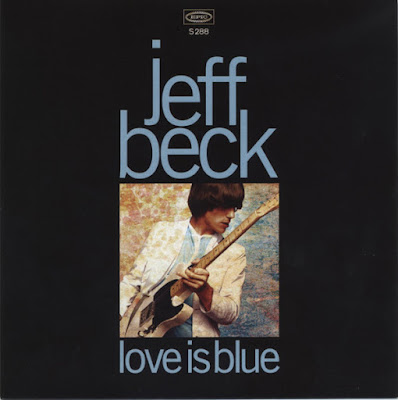For a few months after leaving The Yardbirds, Jeff Beck was unpredictable. He could go heavy, Psych, blues, but I wouldn't suspect him doing Middle-of-the-Road music. "Love is Blue" is a MOR standard, and to me, it's a crazy concept between him and the producer Mickie Most. Still, at its best, there is a trace of a Shadows influence, regarding how Beck handles his guitar duty on this French pop song. The first 20 seconds must have people look at the record label to see it wasn't a mistake. Once the guitar kicks in, it's Beck, but a weird Jeff. On a kitsch level, it's masterful. But Beck and kitsch really doesn't really mix well. Especially when the backup chorus kicks in. Did Mickie Most really see Jeff Beck as the guitar hero for the granddad set in the middle of the swinging 1960s?
The B-side (thank god for B-Sides) is "I've Been Drinking" a co-write between Beck and his vocalist at the time, Rod Stewart. I have to imagine that this is the classic Jeff Beck Group lineup with Ron Wood on bass, Mickey Weller on drums, and Nicky Hopkins on piano. I like the echo effect on Rod's voice and the underhanded backup vocals. Sturdy, workman-like, but not on a genius level. Still, there is something always cool about Jeff Beck. It's in his DNA.








